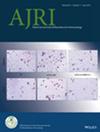COVID-19 Vaccine mRNA Biodistribution: Maternal and Fetal Exposure Risks
Abstract
SARS-CoV-2 infection during pregnancy has severe consequences on maternal and neonatal health. Presently, vaccination stands as a critical preventive measure for mitigating infection-related risks. Although the initial clinical trials for the COVID-19 vaccines excluded pregnant women, subsequent investigations have indicated mRNA vaccinations' effectiveness and short-term safety during pregnancy. However, there is a lack of information regarding the potential biodistribution of the vaccine mRNA during pregnancy and lactation. Recent findings indicate that COVID-19 vaccine mRNA has been detected in breast milk, suggesting that its presence is not confined to the injection site and raises the possibility of similar distribution to the placenta and the fetus. Furthermore, the potential effects and responses of the placenta and fetus to the vaccine mRNA are still unknown. While potential risks might exist with the exposure of the placenta and fetus to the COVID-19 mRNA vaccine, the application of mRNA therapies for maternal and fetal conditions offers a groundbreaking prospect. Future research should leverage the unique opportunity provided by the first-ever application of mRNA vaccines in humans to understand their biodistribution and impact on the placenta and fetus in pregnant women. Such insights could substantially advance the development of safer and more effective future mRNA-based therapies during pregnancy.

 求助内容:
求助内容: 应助结果提醒方式:
应助结果提醒方式:


